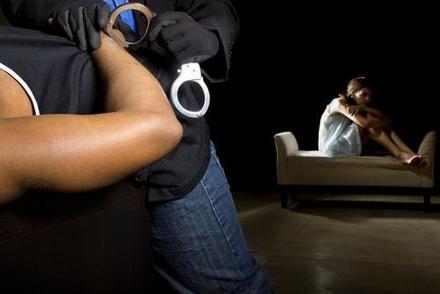TELEPHONES ANSWERED 24 HOURS A DAY
Recent Blog Posts
Too Many Tickets Can Cost You Your License
 As you are probably well aware, certain violations of the law can lead to the suspension or revocation of your driving privileges. Many of the more obvious offenses are related to driving under the influence, such as the refusal to submit to or the failure of a blood alcohol content test. The responsibility for driver’s license suspensions and revocations falls upon the Office of the Secretary of State in Illinois. Under the law, the Secretary’s Office may impose suspensions in a number of other situations as well, including delinquent child support or underage drinking. However, even the most seemingly mundane traffic violations can result in the suspension of your license, depending on your driving history.
As you are probably well aware, certain violations of the law can lead to the suspension or revocation of your driving privileges. Many of the more obvious offenses are related to driving under the influence, such as the refusal to submit to or the failure of a blood alcohol content test. The responsibility for driver’s license suspensions and revocations falls upon the Office of the Secretary of State in Illinois. Under the law, the Secretary’s Office may impose suspensions in a number of other situations as well, including delinquent child support or underage drinking. However, even the most seemingly mundane traffic violations can result in the suspension of your license, depending on your driving history.
Moving Violations
The Illinois Vehicle Code, along with the Office of the Secretary of State, maintains a list of traffic offenses that are considered “moving violations.” The list includes most of the offenses you would expect, such as:
The Difference Between a Sting and Entrapment
 Sting operations are commonly used by law enforcement organizations to apprehend would-be lawbreakers in a controlled environment. While they are most often associated with anti-prostitution efforts and drug-related crimes, stings can be used in almost any area of criminal law. In fact, a recent sting arranged by the Los Angeles Police Department led to the arrest of a several ride-sharing drivers who, police officials claim, picked up passengers illegally. To an outside observer, a sting operation may seem very much like an entrapment technique, which, by law, would illegal on the part of law enforcement. While there are important differences between the two, the line can be fairly obscured at times.
Sting operations are commonly used by law enforcement organizations to apprehend would-be lawbreakers in a controlled environment. While they are most often associated with anti-prostitution efforts and drug-related crimes, stings can be used in almost any area of criminal law. In fact, a recent sting arranged by the Los Angeles Police Department led to the arrest of a several ride-sharing drivers who, police officials claim, picked up passengers illegally. To an outside observer, a sting operation may seem very much like an entrapment technique, which, by law, would illegal on the part of law enforcement. While there are important differences between the two, the line can be fairly obscured at times.
What is a Sting?
By all accounts, a sting is an admittedly deceptive practice used to catch those involved in criminal activity. In a sting operation, a police officer—usually undercover—or a recruited civilian is typically employed to facilitate the suspect’s attempts to commit an illegal act. This often includes a law enforcement agent posing as a prostitute, drug buyer, or one of many other potential roles. When the suspect attempts to commit the illegal act, he or she is usually arrested and charged.
Statutory Summary Suspensions Related to DUI
 By this point, most people are aware of the dangers of driving under the influence, or DUI. Virtually everyone realizes that the prosecution of drunk driving carries serious penalties and consequences that can reach far into a person’s future. This, of course, is in addition to the potentially deadly results of DUI-related accidents. What many may not realize, however, is that the impact of a DUI situation is not necessarily dependent upon a conviction or a ruling of the court. Instead, the decisions you make during a DUI stop can have an effect on your life long before you ever set foot in the courtroom.
By this point, most people are aware of the dangers of driving under the influence, or DUI. Virtually everyone realizes that the prosecution of drunk driving carries serious penalties and consequences that can reach far into a person’s future. This, of course, is in addition to the potentially deadly results of DUI-related accidents. What many may not realize, however, is that the impact of a DUI situation is not necessarily dependent upon a conviction or a ruling of the court. Instead, the decisions you make during a DUI stop can have an effect on your life long before you ever set foot in the courtroom.
Granted Authority
Criminal penalties for DUI, as you might expect, can only be handed down by a decision of the court, based on a finding of guilt or a guilty plea. Court supervision may be ordered in lieu of a conviction, and the requirements of such supervision may seem like criminal penalties, but still require the action of the court. Under Illinois law, however, the Office of the Secretary of State is tasked with overseeing driver’s license suspension and revocations, which are not dependent upon a finding of guilt. Instead, the suspension of a driver’s license is an administrative penalty which limits the privileges of driving, which, as privileges and not rights, are subject to revocation without a conviction.
Marijuana Decriminalization Bill Sent Back with Changes by Governor
 A bill that would make low-level marijuana possession a civil offense comparable to a traffic ticket failed to garner the full support of Illinois Governor Bruce Rauner earlier this month. Instead, the Republican governor sent the measure back to the legislature with his proposed amendments. Under the provisions of an amendatory veto, the House and Senate can elect to approve the bill with Rauner’s changes or to let it die and propose a new bill at a later date.
A bill that would make low-level marijuana possession a civil offense comparable to a traffic ticket failed to garner the full support of Illinois Governor Bruce Rauner earlier this month. Instead, the Republican governor sent the measure back to the legislature with his proposed amendments. Under the provisions of an amendatory veto, the House and Senate can elect to approve the bill with Rauner’s changes or to let it die and propose a new bill at a later date.
Gubernatorial Amendments
In his veto letter, the governor took issue with several of the bill’s specifics, while expressing support for the decriminalization effort. Governor Rauner has previously stated that he hopes to reduce the state’s prison population by 25 percent in the next ten years, and he acknowledged the marijuana bill as a potential contributor to his goal. He believes, however, the proposed law was too lenient in a number of areas, including the possession limit and specified fines.
Bail vs. Bond: A Family Member Was Arrested, What Will We Have to Pay?
 The words “bail” and “bond” are common to stories and news accounts of arrests on criminal charges, especially for violent crimes and felonies. In fact, if you or a loved one has been arrested, you may have heard the words spoken around you. Often, the two terms seem to be used interchangeably, and while the meaning is usually close enough to what the speaker or reporter intended, the two are not quite the same.
The words “bail” and “bond” are common to stories and news accounts of arrests on criminal charges, especially for violent crimes and felonies. In fact, if you or a loved one has been arrested, you may have heard the words spoken around you. Often, the two terms seem to be used interchangeably, and while the meaning is usually close enough to what the speaker or reporter intended, the two are not quite the same.
What is Bail?
Put simply, bail is a form of security or collateral set by the judge, if required, after a defendant has been arrested to ensure that he or she appears for trial. In a vast majority of criminal cases, the trial date is not held until weeks or months after the initial arrest. The defendant has the option of remaining in jail to await trial, but for an innocent or wrongly-accused person, doing so may be unbearable.
Dating App Case Raises Questions about Sex Offender Registration
 Last week, a Michigan judge agreed to reconsider the sentence he imposed on a 19 year old Indiana man for having consensual sex with a 14 year old girl. The two teens had met through an internet dating app where the girl, as she admitted to the court, lied about her age, purporting to be 17. The young man was originally sentenced to 90 days in jail and five years of probation. More seriously, however, he was required to register as a sex offender for the next 25 years in both Michigan and Indiana.
Last week, a Michigan judge agreed to reconsider the sentence he imposed on a 19 year old Indiana man for having consensual sex with a 14 year old girl. The two teens had met through an internet dating app where the girl, as she admitted to the court, lied about her age, purporting to be 17. The young man was originally sentenced to 90 days in jail and five years of probation. More seriously, however, he was required to register as a sex offender for the next 25 years in both Michigan and Indiana.
Despite the girl’s admission of lying, the consensual nature of the sexual activity, and the in-court testimony by the girl and her mother that she was not a sex-crime victim, the trial judge refused to consider diversionary programs. Instead, he blasted what he sees as today’s hook-up culture, in which people “meet, hookup, have sex, sayonara. Totally inappropriate behavior.” In compliance with sex offender registration laws, the young man’s sentence means that he is not permitted to go online, eat at restaurants that serve alcohol, or even live at home because he has brother who is only 15.
Governor Signs Concealed Carry Cleanup Bill
 Long known throughout the country for its strict gun control laws, the state of Illinois seems poised to become immersed in debate again as recent legislation has reignited public interest regarding firearms and the concealed carry statutes. Many around the state expect a new wave of political discussion as the state legislature, along with Governor Bruce Rauner, recently approved the first changes to the concealed carry law since it was hurriedly passed more than two years ago. While the new law makes few substantial changes, it may signal the beginning of a new chapter in the ongoing public safety conversation on the effectiveness and application of gun laws.
Long known throughout the country for its strict gun control laws, the state of Illinois seems poised to become immersed in debate again as recent legislation has reignited public interest regarding firearms and the concealed carry statutes. Many around the state expect a new wave of political discussion as the state legislature, along with Governor Bruce Rauner, recently approved the first changes to the concealed carry law since it was hurriedly passed more than two years ago. While the new law makes few substantial changes, it may signal the beginning of a new chapter in the ongoing public safety conversation on the effectiveness and application of gun laws.
This spring, nearly 140 weapons-related bills were introduced before the Illinois General Assembly, most of them aimed at easing strict gun control provisions in the law. The flood of proposed bills follows a rather quiet period in which both sides of the gun debate agreed to refrain from seeking changes to the concealed carry law for at least a year after its passage. With that period now in the rearview mirror, advocates for looser gun laws and proponents of heavier restrictions have renewed their efforts to balance constitutional freedoms and public best interest.
Confidentiality of Attorney Consultations
 When you or a loved one has been charged with a crime, you deserve the best possible representation from an attorney you can trust. The major concern for many, of course, is how to go about establishing that trust, especially if you have never needed legal counsel before. Before retaining a particular lawyer or law firm, you may speak with several, in an effort to determine your ability to work with that office and to ensure your respective goals and values are complementary. This process, however, can raise questions for individuals regarding confidentiality, as a potential defendant may share sensitive information in the course of no-obligation consultations with a number of potential candidates.
When you or a loved one has been charged with a crime, you deserve the best possible representation from an attorney you can trust. The major concern for many, of course, is how to go about establishing that trust, especially if you have never needed legal counsel before. Before retaining a particular lawyer or law firm, you may speak with several, in an effort to determine your ability to work with that office and to ensure your respective goals and values are complementary. This process, however, can raise questions for individuals regarding confidentiality, as a potential defendant may share sensitive information in the course of no-obligation consultations with a number of potential candidates.
Rules of Conduct
In their practice, attorneys must adhere to certain professional and ethical standards. Such standards are typically drafted for use in the applicable jurisdictions, and failure to comply can result in serious sanctions against an attorney, up to and including potential disbarment. The accepted standards provide guidelines for much of an attorney’s practice including selecting cases, firm management, relationship with the court, and, of course, confidentiality. In Illinois, these regulations have been set forth in the Illinois Rules of Professional Conduct, which constitutes Article VIII of the Illinois Supreme Court Rules.
What to Do after an Incident of Police Brutality
 In recent months the nation has grappled with the question of police tactics and the use of force by law enforcement officers. Are police becoming too much like a military force that oppresses as opposed to a community presence that encourages cooperation? Are police tactics too aggressive? Is there sufficient oversight to ensure officers do not use too much force in dealing with a situation? While members of local, state, and the national government debate these questions, individuals who observe police tactics on the news may themselves wonder what to do if they believe they are victims of police brutality.
In recent months the nation has grappled with the question of police tactics and the use of force by law enforcement officers. Are police becoming too much like a military force that oppresses as opposed to a community presence that encourages cooperation? Are police tactics too aggressive? Is there sufficient oversight to ensure officers do not use too much force in dealing with a situation? While members of local, state, and the national government debate these questions, individuals who observe police tactics on the news may themselves wonder what to do if they believe they are victims of police brutality.
Police Brutality is a Violation of Your Civil Rights
Laws permit police officers to use a reasonable amount of force to protect themselves or others, apprehend a suspect, or defuse a hostile situation. However, when police officers use force that is not reasonable under the circumstances, a federal civil rights violation may have occurred. For instance, an officer who subdues then punches and kicks an elderly woman because she would not move away from an area fast enough has likely violated that woman’s civil rights.
Emerging Adults and the Future of the Criminal Justice System
 In 1899, the nation’s first juvenile criminal court was established right here in Cook County, Illinois. The goal of the new system was to prevent the mistakes and poor choices of young people from evolving into a lifetime of bad decisions and criminal prosecution. The juvenile court was—and remains to this day—primarily focused on rehabilitating young offenders rather than severely punishing criminal activity. Once an individual turns 18, however, the situation changes dramatically, as juvenile-type behavior such as shoplifting or an after-school fight suddenly carry much more severe criminal penalties.
In 1899, the nation’s first juvenile criminal court was established right here in Cook County, Illinois. The goal of the new system was to prevent the mistakes and poor choices of young people from evolving into a lifetime of bad decisions and criminal prosecution. The juvenile court was—and remains to this day—primarily focused on rehabilitating young offenders rather than severely punishing criminal activity. Once an individual turns 18, however, the situation changes dramatically, as juvenile-type behavior such as shoplifting or an after-school fight suddenly carry much more severe criminal penalties.
New Demographic Group
Perhaps, in past generations, 18 was a reasonable, albeit distinct, threshold between youth and adulthood. The evolution of society, however, seems to indicate that cultural concepts of an adult may be changing, and that the criminal justice system may need to evolve as well. That which was once considered a transitional stage has begun gaining recognition as a unique demographic age group. Developmental experts and scholars are now using the term “emerging adults” to describe people between 18 and 25 years old. Compared to 50 years ago, there is little question that emerging adults are less independent than in the past, and many have yet to settle into what most consider to be “adult roles.”




